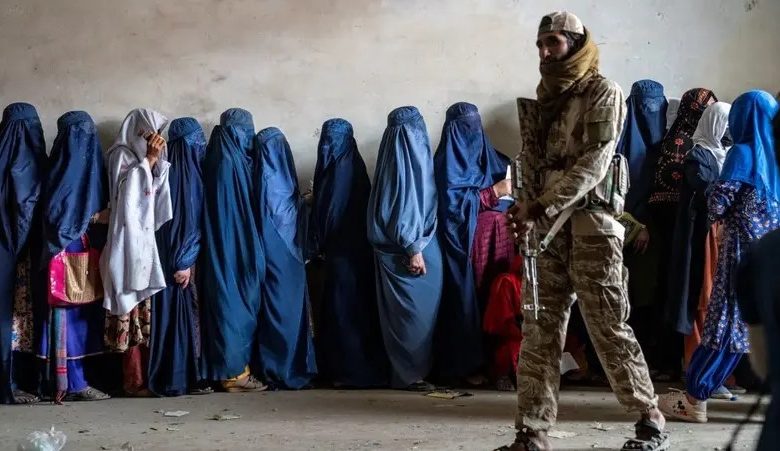Women in Afghanistan Struggle Under Male Guardian Rules

Since the Taliban returned to power, Afghan women have been barred from going on long trips, travelling by plane or entering government buildings unless they are accompanied by a man.
Under the Taliban government’s austere interpretation of Islamic law, the “mahram” practice long rooted in Afghan society has become compulsory.
On a recent visit to their former university in Kabul, Mariam and a female friend were stopped from entering the building to collect a transcript.
“At the entrance, the Taliban told us that we needed a mahram,” said Mariam, whose name has been changed to protect her identity like other women AFP interviewed.
“But my brother was at work, my friend’s brother wasn’t old enough and her father had died,” she said.
“I saw a guy on the street and he agreed to help us,” she said. “We had the courage to pass him off as our brother” to get in.
Under Islam, a mahram is a close male relative — typically a husband, brother, father, son, grandfather or uncle — with whom a woman is not obliged to wear hijab, and who acts as her guardian and protector.
In Afghanistan, strict rules define what women are allowed to do, with their proponents claiming they guarantee both the women’s, and their whole family’s, honor.
The Taliban authorities, in power since 2021, have responded to international criticism by saying that Afghanistan’s laws follow Islam and guarantee all citizens’ rights under sharia.
“Unfortunately, outside circles have their own sensitivities and present incorrect interpretations based on envy and prejudice,” Taliban government spokesman Zabihullah Mujahid said.
“They should respect and value Islamic laws.”



